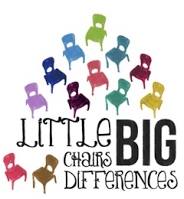Optional Early Morning Yoga with Yo Re Mi
8am-8:45am outside on the lawn (weather permitting)
The incorporation of Yo Re Mi into the classroom creates self-awareness, focus, concentration, and relaxation while children learn with their bodies, minds and voices all at once. In this workshop teachers, parents and therapists will build their tool-box for engaging attention and managing behavior while honoring creativity and imagination in a non-competitive and nurturing environment. Participants will experience how music, movement and mindfulness can be combined to enhance learning, foster sensory integration, increase focus and reduce stress.
Zine Pop-Up
8:30am-9am and 11:30am-12:30pm in the Gallery
Session A
10:15AM-11:45AM
"Stories that move, sing, and settle us: Vocal rhythms, collaborative sounds, and transformative silences inside stories for young children - Julia Morris
In this interactive workshop, participants will explore ways that the voice can be used as a rhythmic and sound-making instrument in the storytelling process. Through kinesthetic and vocal journeys as well as through musical role play strategies, we will live inside oral narratives in a new way. Whether immersing ourselves in trickster tales from West Africa or the fairy tale sphere of H.C. Andersen, we will examine how voice and voicelessness succeed in moving characters (and ourselves!) forwards, backwards, and into an imaginative ‘elsewhere.’ These story-driven ‘elsewheres’ offer children fresh perspectives on the importance of resilience, kindness, and stillness in an increasingly noisy world.
Was Rosa just tired? Reframing stories of Black resistance in Early Childhood settings – Maimuna Mohammed and Takiema Bunche-Smith
In this workshop, participants will consider and critique commonly told stories about historical figures engaged in resistance to children in early childhood settings. Through interactive culturally responsive storytelling, we will co-create new narratives about Black resistance that centers truth, culture, legacy, and considers young children’s racial and cultural development.
Historical silence and trauma still show up today. How do we help them share their stories? - Daseta Gray and Reeshemah Brightley
This workshop will discuss the historic silence that was imposed on the underserved communities the forbid most of their stories to be told: Silence under white dominance is a narrative that has become a part of the social construct of Black people of the Americas for centuries. Beginning in the slave castles on the coast of West Africa following their journey as enslaved Africans to the “New World,” a score of silence was placed over a new story laced with pain. In this conversation, I ask why people of African descent In the Americas might remain silent, in instances of day today traumas and events? How have Black people have been historically forced into silence? This workshop explores the traumatic history of Black populations in the Americas, and how this history translates into the way the descendants of the former enslaved interact with the modern world as racialized subjects and inheritors of racial trauma. Engaging in the work as early childhood educators we must give voice to the voiceless and be the voice for our young children especially the 0- 3 year olds and share their stories.
Session B
1:00pm-2:30PM
Singing our stories: Using music to build equitable, just and loving community in our classrooms - City Love
In this workshop City Love (www.muchcitylove.com) will share a participatory sequence of original songs that early childhood educators can use to build equitable, just, loving community in our classrooms. (Think Kendrick Lamar and Jack Johnson as Kindergarten Teachers) We will explore the ways this music can be used to open up dialogue, help us tell our stories, affirm our identities, empower students to exemplify respect, solidarity and equity in the face of societal examples demonstrating the opposite, build belonging and inclusivity in our classrooms, and lovingly transform our communities from the inside out. Come sing with us!
Cultivating cultural consciousness through storytelling - Razan Abdin-Adnani
This workshop will offer practical tips for affirming all children’s identities, stories, and voices in our educational spaces. It will invite participants to consider whose stories we’re telling and why? It will inspire participants to imagine new possibilities for story times that are inclusive and intersectional—even for our youngest children.
Who Wrote This? An examination of who is writing accessible African folktales and telling stories about Black children and gain resources – Sala Cyril and Mshairi Siyanda
In this workshop, participants will critique African folktales and stories about Black children based on their authorship in early childhood settings. Using models of traditional folktales, participants will tell their own stories. By doing so, they will recover the beauty and history of oral storytelling traditions.

